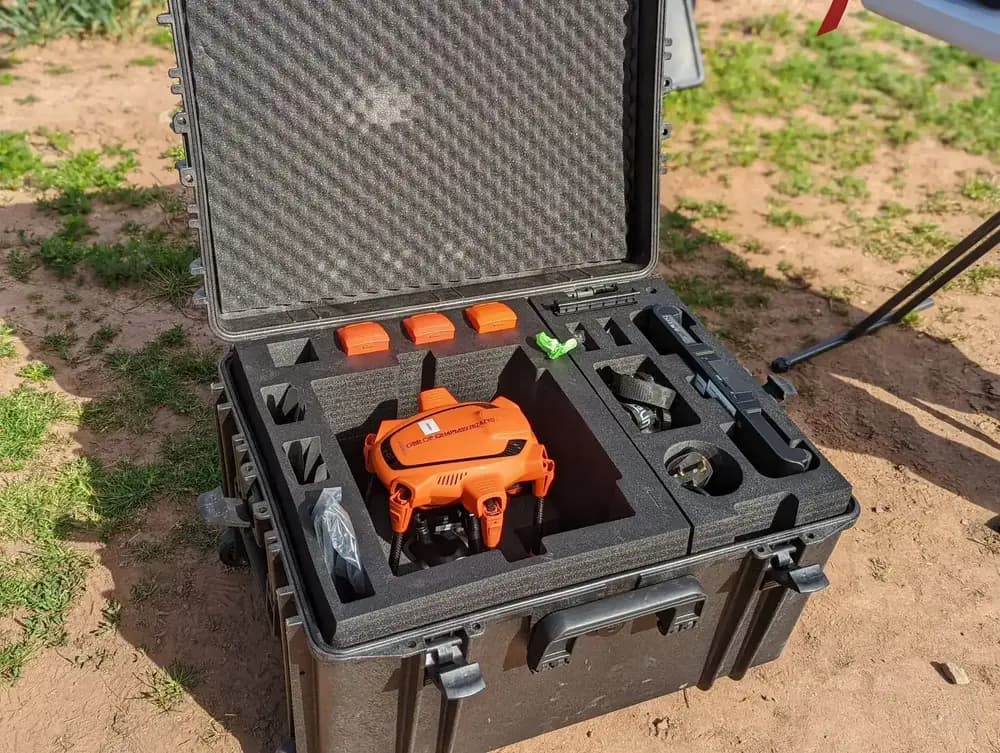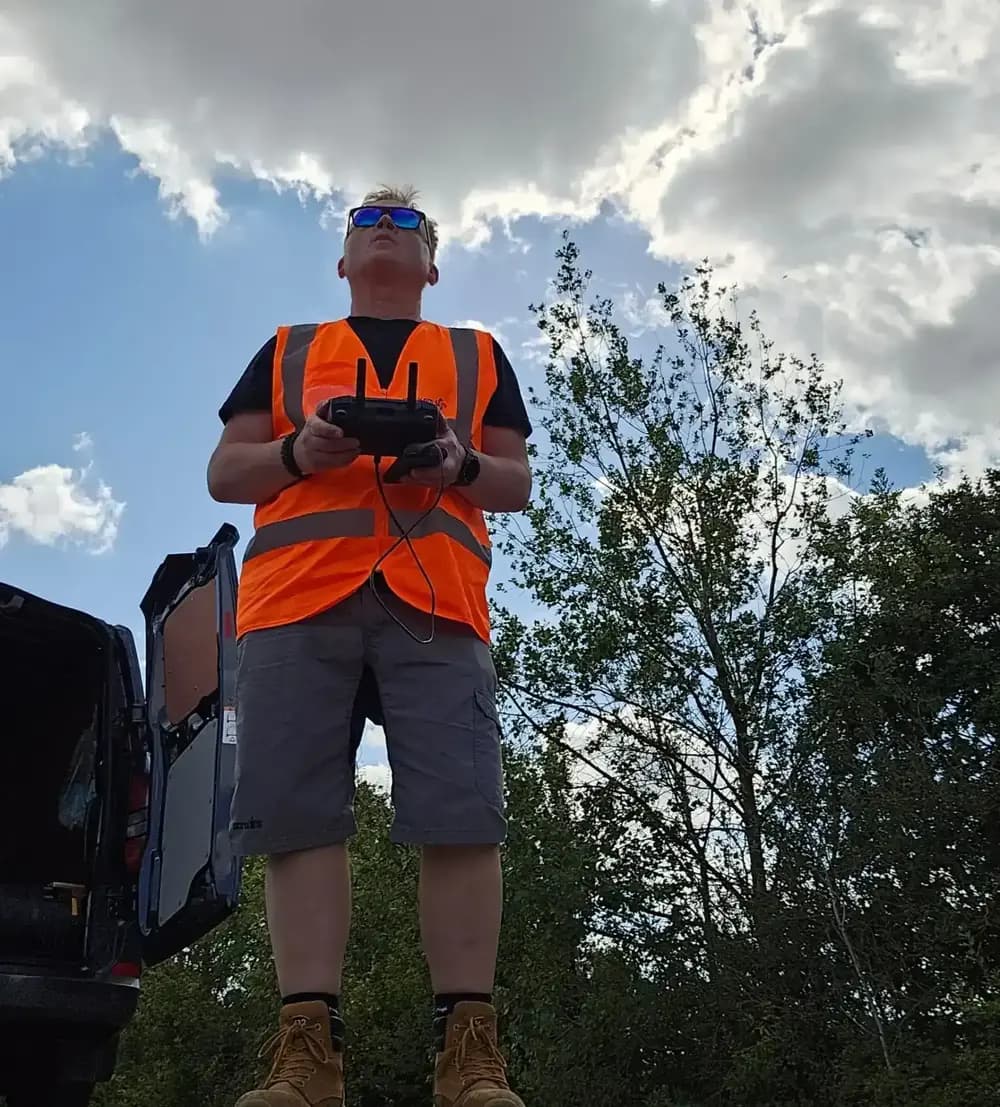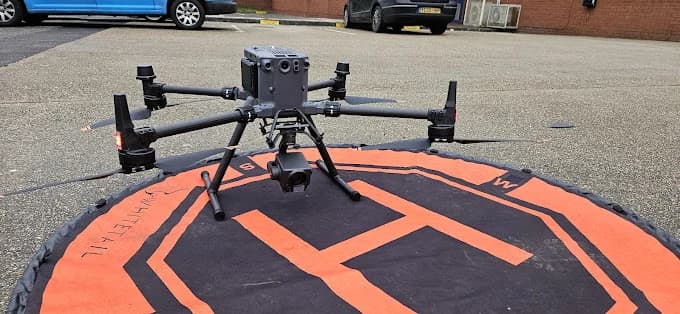
After countless hours in the air as a drone pilot, I can tell you this: a sudden gust of wind or a signal drop doesn't care if you're flying for fun or for a client. The question of drone insurance is one I hear constantly, and it's not a simple 'yes' or 'no'.
While the law treats hobbyists and professionals differently, a flyaway drone can cause serious damage no matter who is at the controls.
Before your next flight, let's cut through the noise and figure out exactly what you need to protect yourself, your gear, and your bank account.
30 Second Summary
- Recreational drone users in the UK aren't legally required to have insurance, but it's highly recommended
- Commercial drone operators must have insurance under EC 785/2004 regulations to obtain Operational Authorisation
- Insurance coverage typically includes public liability for property damage or injuries caused by your drone
- Minimum insurance requirements for commercial operations depend on the mass of your drone
- Flying without required insurance as a commercial operator can result in fines and revocation of permits
Hobbyist drone pilots in the UK are not legally required to have insurance
While many regulations govern drone usage in the UK, insurance isn't legally mandated for hobbyist drone pilots. This means if you're flying your drone purely for fun and not for commercial purposes, you don't technically need an insurance policy to operate legally.
However, just because you aren't required to have insurance doesn't mean flying without it is wise.
From my experience, even the most skilled drone pilots can be caught out by a sudden gust of wind or a technical glitch. I've seen simple hobby flights turn into complicated situations, and I personally wouldn't fly any of my drones, even for recreation, without liability coverage in place.
You are personally liable for all costs and potential legal proceedings, and it's just not worth the risk.
Many hobbyists opt for liability coverage through membership organizations like the British Model Flying Association (BMFA), which includes insurance as part of their annual fee. This provides financial protection and peace of mind while enjoying your drone flying activities.
Commercial drone operators must have insurance that meets EC 785/2004 regulations
Unlike hobbyist drone pilots, anyone using drones for commercial purposes in the UK must have insurance coverage.
This requirement falls under the European regulation EC 785/2004, which mandates third-party liability insurance for commercial drone operations regardless of the drone's weight.
Your insurance policy must specifically cover aerial work and commercial drone operations. The coverage should meet the minimum requirements outlined in the EC regulation, which varies based on your drone's mass.
Most commercial drone operators I know opt for policies with at least £1 million in coverage to protect against potential damage to property or injury to people.
When I went through my own GVC and Operational Authorisation process, getting the right insurance was a non-negotiable first step. The CAA is very clear: no compliant insurance, no permission to fly commercially.
You'll need to provide proof of adequate coverage, and remember that standard home or business insurance simply won't be accepted.
Recreational vs. Commercial Drone Insurance: A Quick Comparison
Feature | Recreational (Hobbyist) Use | Commercial Use |
Legal Requirement | Not legally required, but highly recommended. | Mandatory under EC 785/2004. |
Typical Coverage | Public liability; often included with club memberships (e.g., BMFA). | Comprehensive public liability, equipment, and often personal injury. |
Proof of Insurance | Not required for flight, but good to have. | Must be provided to the CAA to obtain/maintain Operational Authorisation. |
Cost | Lower cost, with some annual memberships providing coverage for a low fee. | Higher premiums, typically several hundred pounds per year. |
Drone insurance can cover public liability, equipment damage, and personal injury
Comprehensive drone insurance packages offer several layers of protection for drone pilots flying in UK airspace. Most policies include public liability coverage, which protects you if your drone damages property or injures someone.
This is especially crucial in urban environments where the risk of accidents is higher.
Equipment coverage safeguards your investment against theft, accidental damage, or loss. Given that high-quality drones can cost thousands of pounds, this protection can save you from significant financial loss.
Personal injury coverage applies if you're hurt while operating your drone. Some policies also include legal expense coverage, helping with costs if you face regulatory issues or legal claims.
In my professional opinion, public liability is the most critical part of any policy. Your drone is replaceable, but a liability claim can be financially devastating. When I choose a policy, I look at the liability coverage first and foremost, then consider adding equipment cover for my more expensive aircraft.
Insurance protects against financial loss from accidents, damage, or legal claims
The primary purpose of drone insurance is financial protection against potentially costly incidents. If your drone causes property damage or injures someone, you could face significant financial liability.
Insurance covers these costs so you don't have to pay out-of-pocket.
I always tell aspiring drone pilots to think beyond the obvious crash. What if your drone distracts a driver, causing an accident? What if it lands on a sensitive industrial site, causing a shutdown? These are real-world risks we have to be insured against. My insurance isn't just for my peace of mind; it's a critical business tool that protects my assets and my clients.
Even a minor incident could result in major expenses.
Insurance also protects your investment in the drone itself. If your equipment is damaged, stolen, or lost during operation, your policy may cover repair or replacement costs.
This comprehensive financial protection gives you peace of mind while flying, knowing you're covered against unexpected expenses and legal complications.
Flying commercially without mandatory insurance can lead to fines and loss of operational permissions.
Commercial drone operators face serious consequences if they operate without the mandatory insurance required by UK law.
The Civil Aviation Authority (CAA) can impose substantial fines—potentially reaching thousands of pounds—for non-compliance with insurance regulations.
Beyond immediate financial penalties, operating commercially without proper insurance can result in the CAA revoking your Operational Authorisation. This effectively grounds your business, preventing you from legally conducting any commercial drone flights until you rectify the situation.
From a professional standpoint, flying uninsured is commercial suicide. Word gets around quickly in this industry, and no reputable client will hire a pilot who cuts corners on something as fundamental as insurance.
It signals a lack of professionalism and a disregard for safety, damaging your reputation and future earning potential.
With those serious consequences in mind, choosing the right provider is a critical business decision.
UK Drone Insurance Providers
Below is a list of some well-known drone insurance providers in the UK. This is not an exhaustive list or an endorsement; you should always conduct your own research to find the policy that best suits your needs.
Coverdrone
Flock (now part of Skywatch)
Insure4Drones
Moonrock Insurance
FPV UK (membership includes insurance)
British Model Flying Association (BMFA) (membership includes insurance)
What Drone Insurance Typically Doesn't Cover
It's just as important to know what your insurance doesn't cover. I make it a habit to review my policy's exclusion list before taking on any unusual jobs.
Always read your policy documents carefully. Common exclusions include:
Illegal Flights: Any damage or loss that occurs while breaking CAA regulations or other laws.
Flying in Restricted Zones: Incidents that happen while flying in no-fly zones or other restricted airspace without permission.
Intentional Damage: Deliberately crashing or causing damage with your drone.
Wear and Tear: Gradual deterioration of your drone and its components is not covered.
Cyber Risks: Loss of data or incidents related to hacking are typically excluded.
Unapproved Pilots: Allowing someone not named or covered by your policy to fly the drone.
Frequently Asked Questions
What Is the Average Cost of Drone Insurance in the UK?
Drone insurance costs in the UK typically range from £5-10 per month for recreational users, while commercial drone operators pay around £500-1,000 annually. You'll find liability-only policies starting at about £50 annually, with comprehensive coverage running £100-200.
From what I see in the industry, prices vary based on your drone's value, your experience level, and coverage limits. Many insurers offer flexible pay-as-you-fly options if you don't use your drone regularly.
Can I Get Temporary Drone Insurance for Occasional Flights?
Yes, you can get temporary drone insurance for occasional flights in the UK.
I've used these myself for one-off jobs with specific, high-value insurance requirements. Several providers offer on-demand policies that you can purchase for as little as one hour up to 30 days.
These flexible options are perfect if you're not flying regularly. You'll simply activate coverage through an app or website when needed, paying only for the time you're actually flying your drone.
Does Home Insurance Cover Any Drone-Related Incidents?
I learned this early on: most standard home insurance policies don't automatically cover drone-related incidents. Your policy might offer limited coverage for damage to the drone itself as personal property, but typically excludes liability for accidents you cause while flying it.
You'll need to check your specific policy details or consider adding a rider. For proper protection, dedicated drone insurance remains your best option.
How Does Drone Weight Affect Insurance Requirements and Premiums?
Drone weight directly impacts your insurance requirements in the UK.
This is a key factor when I'm adding a new drone to my commercial fleet. Heavier drones (>250g) face stricter regulations and higher premiums due to increased damage potential.
Sub-250g drones typically qualify for lower premiums. Commercial drone operators with heavier drones pay significantly more than recreational users. Many insurers use weight categories to determine your premium, with each weight threshold bringing additional costs and coverage requirements.
Are There Specific Insurance Requirements for Flying Near Airports?
Yes, flying near airports is a specialist task and you'll need special insurance. You must have liability coverage that meets specific aviation authority requirements for flying in these restricted zones.
Your policy needs explicit coverage for airport proximity operations, and my experience is that premiums will be higher due to the increased risk. Always check if your insurance covers flight in controlled airspace, as standard policies often exclude these high-risk areas.
Conclusion
If you're flying a drone for fun, you don't legally need insurance, but it's still a wise precaution.
However, if you're operating commercially, you must have insurance meeting EC 785/2004 requirements. Either way, proper coverage protects you from potentially devastating financial consequences when accidents happen.
Don't risk flying commercially without insurance—you'll face fines and might lose your operating permissions.
About the Author

Written by
Peter Leslie
Peter Leslie is a CAA-approved commercial drone pilot with 10+ years experience and over 10,000 flight hours. He holds the GVC and A2 CofC drone licences with full CAA Operational Authorisation. Peter is a member of ARPAS-UK, the UK's non-profit trade association for the drone industry. He founded HireDronePilot to connect UK businesses with qualified, insured drone operators.
Looking for More Drone Work?
Join the UK's leading network of professional drone pilots and grow your business.
Open Access
Bid on any job - all jobs open to all pilots
Grow Revenue
Access high-value commercial projects
Stay Busy
Fill your schedule with regular work
Related Articles

Our Drone Survey Service In Stirling, Scotland
Bringing you Stirling drone survey data from areas no one else can fly.

How Much Does A Drone LiDAR Survey Cost
Forecasting your drone LiDAR survey cost requires understanding what's hidden beyond the initial quote.

Step By Step Process Of Drone LiDAR Survey
Next, discover the crucial post-flight steps that determine your survey's success.
